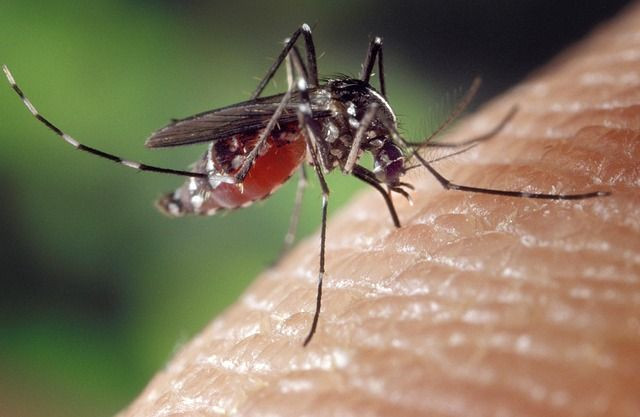Vaccines For Zika, Chikungunya, Dengue Update: The Latest News From The Lab

With the Zika virus continuing to make inroads into the U.S., particularly through Florida, the urgency for a vaccine to protect those most vulnerable to Zika — unborn children infected in the womb — has never been higher. Similarly, there have been ongoing efforts to produce vaccines for other common and fast-spreading mosquito-borne diseases such as dengue and chikungunya.
With that said, let’s take a brief look at some of the latest news from the laboratory regarding these important and potentially life-saving preventative treatments.
Chikungunya
Earlier this late August, researchers from the Austrian biotech company Themis Bioscience GmbH announced their latest step towards creating a vaccine for chikungunya — a Phase 2 clinical trial.
Earlier, their vaccine had passed a phase 1 clinical trial with flying colors, with all of the healthy test subjects generating antibodies against chikungunya without any dangerous side-effects. Other candidates for a chikungunya vaccine have similarly passed these preliminary tests, though Themis’ version uses a modified measles vaccine to deliver its payload.
Ultimately, the real test will happen in Phase 2 (and 3, should it get that far). The company hopes to recruit 320 volunteers for this next trial, which will try to confirm its effectiveness in providing immunity against the virus as well as determine the optimal vaccine dose.
While chikungunya has received less public attention than either Zika or dengue, due to being seen as fairly harmless, more recent research has shown that it can often trigger chronic bouts of crippling pain that lasts for weeks, months and even years following infection. It has also spread further across the world in recent years, with outbreaks having been seen in Italy, France, and throughout Central and South America.
Dengue
As it turns out a vaccine for dengue already exists, called Dengvaxia.
Created by French-based pharmaceutical company Sanofi, Dengvaxia is approved for use in six countries currently and has also been endorsed by the World Health Organization. In extensive trials that involved more than 30,000 volunteers, it has been shown to reduce the risk of severe illness and hospitalization by as much as 30 percent in people who have been previously infected by one or more strains of dengue (there are four major strains in total).
However, more recent research suggests that the vaccine may be ill-suited to protect people from dengue in areas where transmission isn’t rampant. That’s because people are more likely to develop a serious, life-threatening, case of dengue if they’ve already survived an infection from a different strain. While the modestly effective vaccine lowers the risk of severe illness in these individuals, it may only leave people who’ve never been infected at greater risk afterwards. Partly because of that, the vaccine isn’t recommended for children under the age of nine.
Efforts to create a safer, more effective, dengue vaccine are still underway, most notably by the National Institutes of Health (NIH). Their vaccine entered a large scale Phase 3 human trial earlier this year.
Much like Zika, dengue doesn’t cause illness in most of its unfortunate carriers. But 50 to 100 million people are infected by dengue annually in around 120 countries, with nearly half the world's population at risk, according to the World Health Organization, still making the disease a public health priority.
Zika
The race to a Zika vaccine is fast underway.
This past August, the National Institute of Allergy and Infectious Diseases (NIAID) announced it would begin human trials of its experimental vaccine. The vaccine, created through an approach already used to develop a promising vaccine for West Nile virus, will eventually be tested out on 80 healthy volunteers from the ages 18 to 35 at three different locations.
Elsewhere, Inovio Pharmaceuticals have already begun a clinical trial of its potential Zika vaccine earlier this June. And though the results from that trial won’t be reported until the end of the year, the company announced in late August that it would start work on a larger human trial of 160 test subjects in Zika-infested Puerto Rico, which has reported nearly 14,000 cases as of August 31.
Encouraging as these developments are, though, it will likely take years for a successful Zika vaccine to be available to the public, if not longer.
Published by Medicaldaily.com



























